In pics: China's future Mars simulation base in Qinghai
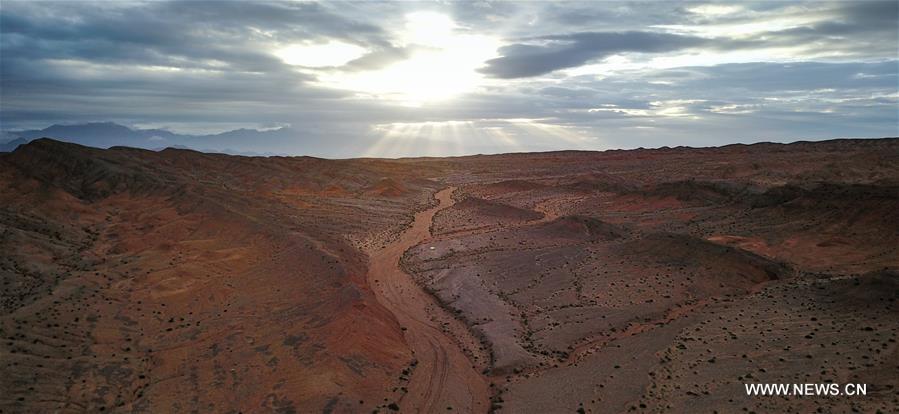
Photo taken on Aug. 18, 2017 shows China's future Mars simulation base in Hongya (Red Cliff) region of Haixi Mongolian and Tibetan Autonomous Prefecture in northwest China's Qinghai Province. About 400 million yuan (61 million U.S. dollars) are expected to invest in the Mars scientific research base and eco-tourism site. The red rock area in Qaidam basin in western Qinghai has been called the most "Martian" place on Earth, with its natural features, landscape and climate all similar to those on the red planet. The base is expected to consist of a "Mars community" and a "Mars campsite." The campsite will have a number of experimental module-like accommodations. It will be built as a one-stop base for experiential learning in aerospace, astronomy, geography and new energy. (Xinhua/Wu Gang)

Photo taken on Sept. 2, 2017 shows China's future Mars simulation base in Hongya (Red Cliff) region of Haixi Mongolian and Tibetan Autonomous Prefecture in northwest China's Qinghai Province. About 400 million yuan (61 million U.S. dollars) are expected to invest in the Mars scientific research base and eco-tourism site. The red rock area in Qaidam basin in western Qinghai has been called the most "Martian" place on Earth, with its natural features, landscape and climate all similar to those on the red planet. The base is expected to consist of a "Mars community" and a "Mars campsite." The campsite will have a number of experimental module-like accommodations. It will be built as a one-stop base for experiential learning in aerospace, astronomy, geography and new energy. (Xinhua/Wang Bo)
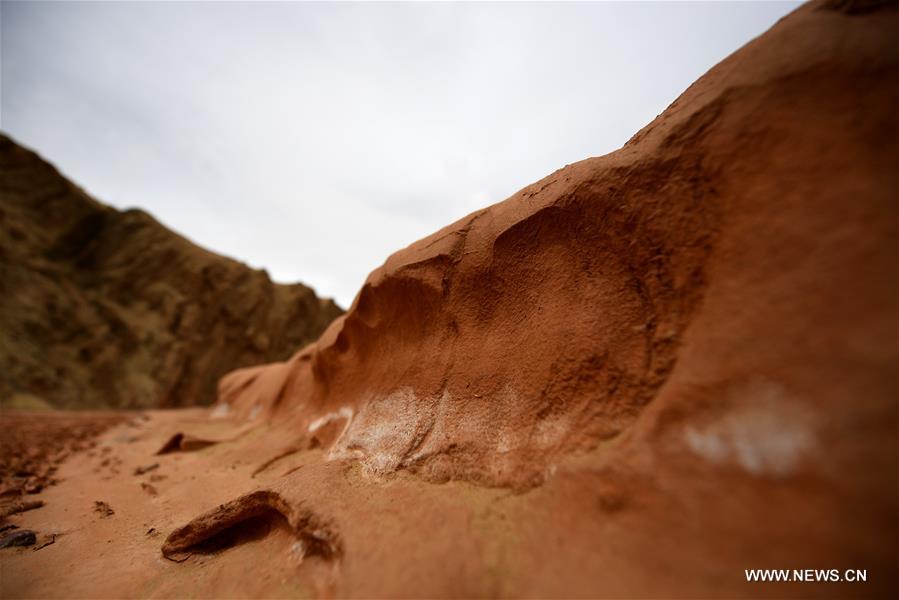
Photo taken on Sept. 2, 2017 shows China's future Mars simulation base in Hongya (Red Cliff) region of Haixi Mongolian and Tibetan Autonomous Prefecture in northwest China's Qinghai Province. About 400 million yuan (61 million U.S. dollars) are expected to invest in the Mars scientific research base and eco-tourism site. The red rock area in Qaidam basin in western Qinghai has been called the most "Martian" place on Earth, with its natural features, landscape and climate all similar to those on the red planet. The base is expected to consist of a "Mars community" and a "Mars campsite." The campsite will have a number of experimental module-like accommodations. It will be built as a one-stop base for experiential learning in aerospace, astronomy, geography and new energy. (Xinhua/Wang Bo)
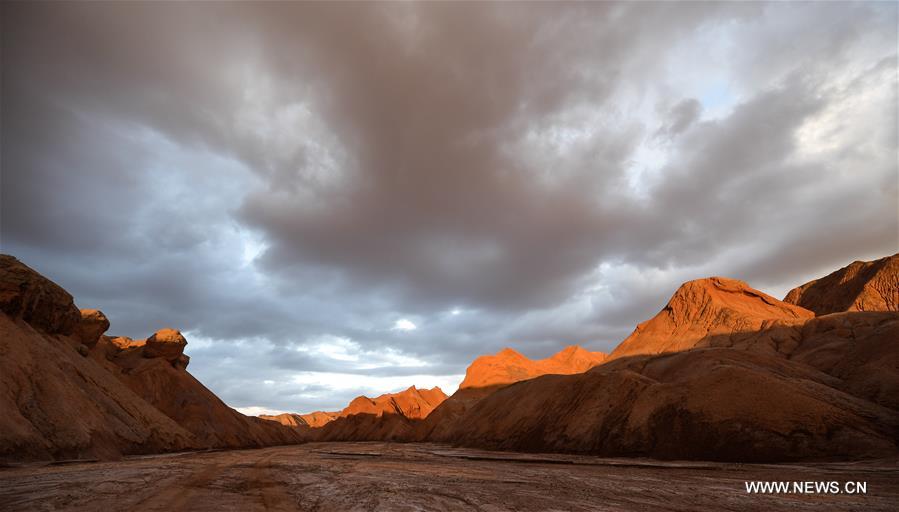
Photo taken on Aug. 18, 2017 shows China's future Mars simulation base in Hongya (Red Cliff) region of Haixi Mongolian and Tibetan Autonomous Prefecture in northwest China's Qinghai Province. About 400 million yuan (61 million U.S. dollars) are expected to invest in the Mars scientific research base and eco-tourism site. The red rock area in Qaidam basin in western Qinghai has been called the most "Martian" place on Earth, with its natural features, landscape and climate all similar to those on the red planet. The base is expected to consist of a "Mars community" and a "Mars campsite." The campsite will have a number of experimental module-like accommodations. It will be built as a one-stop base for experiential learning in aerospace, astronomy, geography and new energy. (Xinhua/Wu Gang)
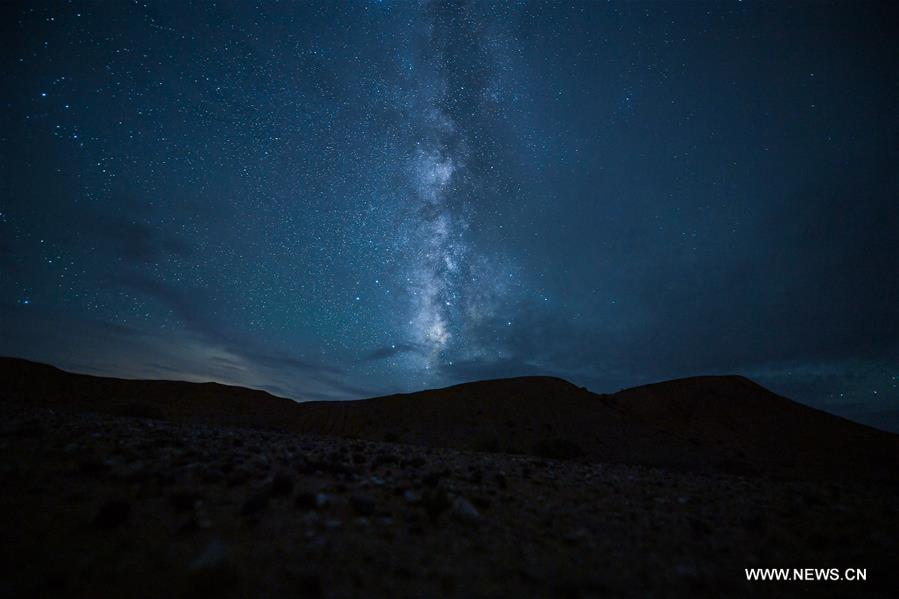
Photo taken on Aug. 18, 2017 shows stars over China's future Mars simulation base in Hongya (Red Cliff) region of Haixi Mongolian and Tibetan Autonomous Prefecture in northwest China's Qinghai Province. About 400 million yuan (61 million U.S. dollars) are expected to invest in the Mars scientific research base and eco-tourism site. The red rock area in Qaidam basin in western Qinghai has been called the most "Martian" place on Earth, with its natural features, landscape and climate all similar to those on the red planet. The base is expected to consist of a "Mars community" and a "Mars campsite." The campsite will have a number of experimental module-like accommodations. It will be built as a one-stop base for experiential learning in aerospace, astronomy, geography and new energy. (Xinhua/Wu Gang)
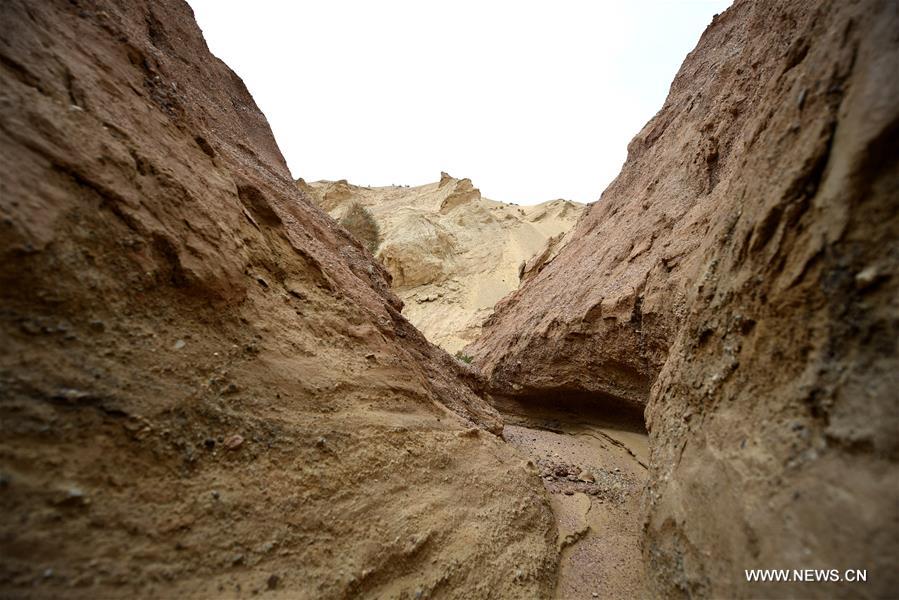
Photo taken on Sept. 2, 2017 shows China's future Mars simulation base in Hongya (Red Cliff) region of Haixi Mongolian and Tibetan Autonomous Prefecture in northwest China's Qinghai Province. About 400 million yuan (61 million U.S. dollars) are expected to invest in the Mars scientific research base and eco-tourism site. The red rock area in Qaidam basin in western Qinghai has been called the most "Martian" place on Earth, with its natural features, landscape and climate all similar to those on the red planet. The base is expected to consist of a "Mars community" and a "Mars campsite." The campsite will have a number of experimental module-like accommodations. It will be built as a one-stop base for experiential learning in aerospace, astronomy, geography and new energy. (Xinhua/Wang Bo)
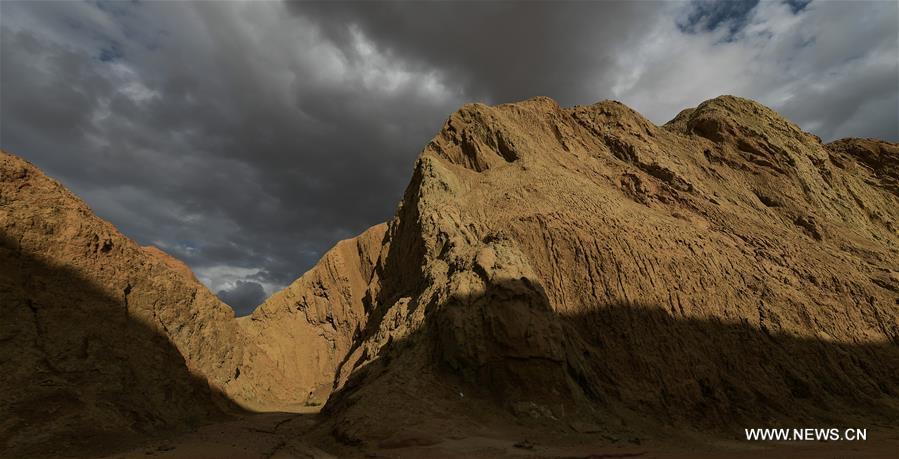
Photo taken on Aug. 18, 2017 shows China's future Mars simulation base in Hongya (Red Cliff) region of Haixi Mongolian and Tibetan Autonomous Prefecture in northwest China's Qinghai Province. About 400 million yuan (61 million U.S. dollars) are expected to invest in the Mars scientific research base and eco-tourism site. The red rock area in Qaidam basin in western Qinghai has been called the most "Martian" place on Earth, with its natural features, landscape and climate all similar to those on the red planet. The base is expected to consist of a "Mars community" and a "Mars campsite." The campsite will have a number of experimental module-like accommodations. It will be built as a one-stop base for experiential learning in aerospace, astronomy, geography and new energy. (Xinhua/Wu Gang)
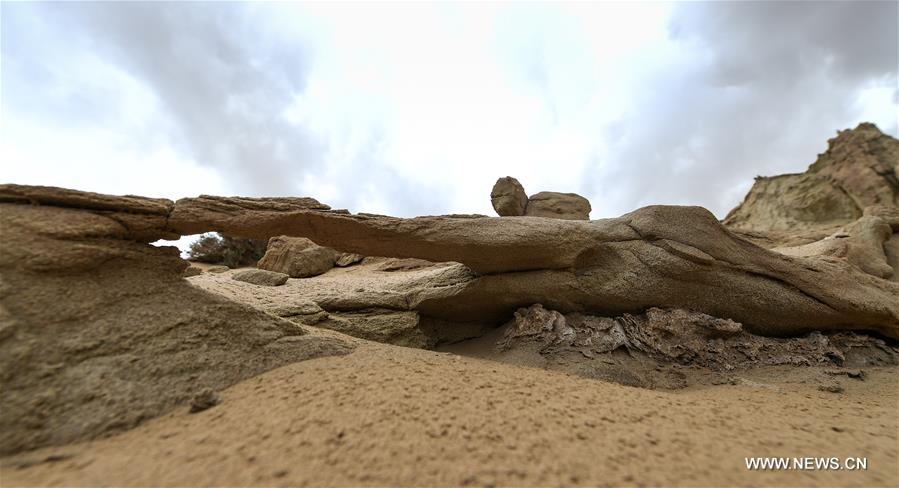
Photo taken on Aug. 18, 2017 shows China's future Mars simulation base in Hongya (Red Cliff) region of Haixi Mongolian and Tibetan Autonomous Prefecture in northwest China's Qinghai Province. About 400 million yuan (61 million U.S. dollars) are expected to invest in the Mars scientific research base and eco-tourism site. The red rock area in Qaidam basin in western Qinghai has been called the most "Martian" place on Earth, with its natural features, landscape and climate all similar to those on the red planet. The base is expected to consist of a "Mars community" and a "Mars campsite." The campsite will have a number of experimental module-like accommodations. It will be built as a one-stop base for experiential learning in aerospace, astronomy, geography and new energy. (Xinhua/Wu Gang)
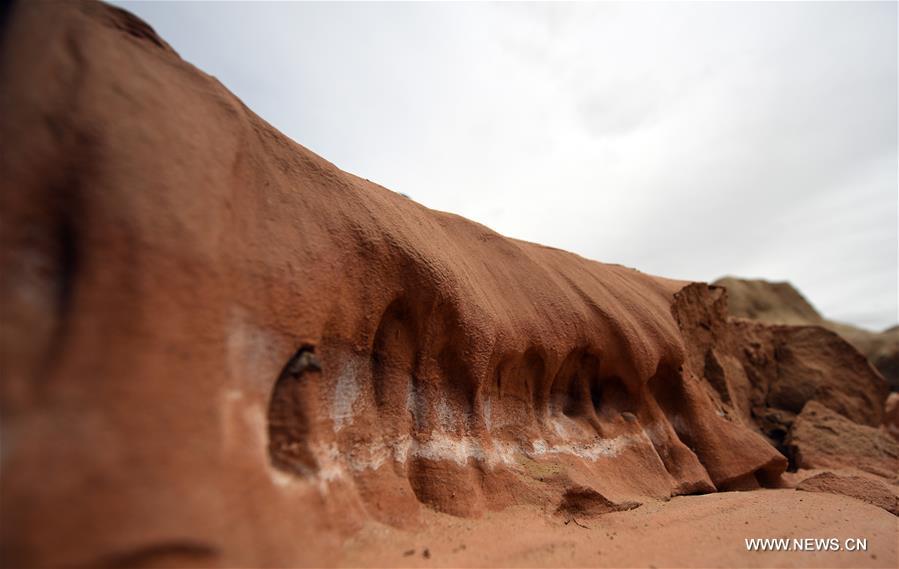
Photo taken on Sept. 2, 2017 shows China's future Mars simulation base in Hongya (Red Cliff) region of Haixi Mongolian and Tibetan Autonomous Prefecture in northwest China's Qinghai Province. About 400 million yuan (61 million U.S. dollars) are expected to invest in the Mars scientific research base and eco-tourism site. The red rock area in Qaidam basin in western Qinghai has been called the most "Martian" place on Earth, with its natural features, landscape and climate all similar to those on the red planet. The base is expected to consist of a "Mars community" and a "Mars campsite." The campsite will have a number of experimental module-like accommodations. It will be built as a one-stop base for experiential learning in aerospace, astronomy, geography and new energy. (Xinhua/Wang Bo)
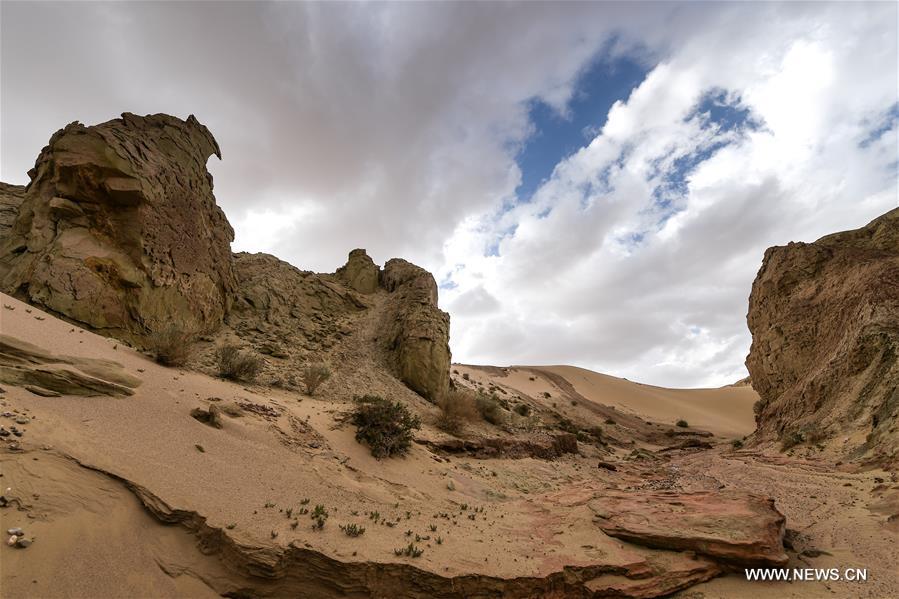
Photo taken on Aug. 18, 2017 shows China's future Mars simulation base in Hongya (Red Cliff) region of Haixi Mongolian and Tibetan Autonomous Prefecture in northwest China's Qinghai Province. About 400 million yuan (61 million U.S. dollars) are expected to invest in the Mars scientific research base and eco-tourism site. The red rock area in Qaidam basin in western Qinghai has been called the most "Martian" place on Earth, with its natural features, landscape and climate all similar to those on the red planet. The base is expected to consist of a "Mars community" and a "Mars campsite." The campsite will have a number of experimental module-like accommodations. It will be built as a one-stop base for experiential learning in aerospace, astronomy, geography and new energy. (Xinhua/Wu Gang)
Your Comment
Name E-mailRelated News
More >>-
;
-
-
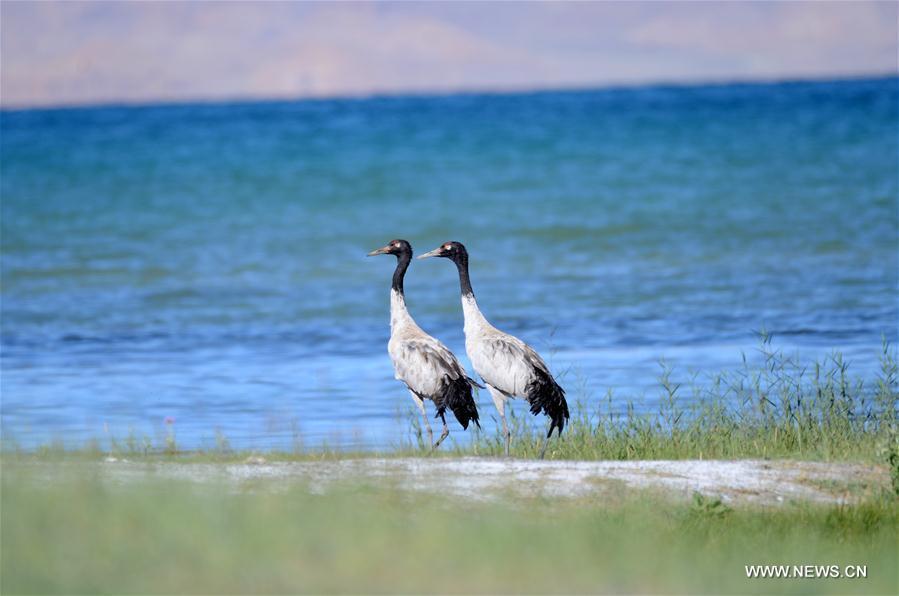
-
Scenery of marshland in Ngari in SW China
Ngari, an almost virgin land on the Qinghai-Tibet plateau, is home for large variety of wild animals.
-
-
-
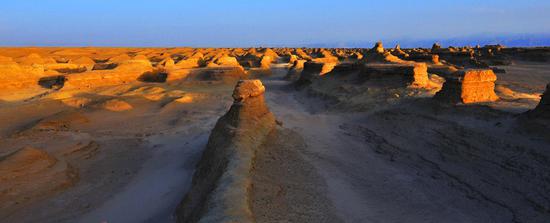
-
First Mars simulation base to be built in NW China
China's first Mars simulation base will be built in Northwest China's Qinghai Province, China News Service reported on Tuesday.
-

